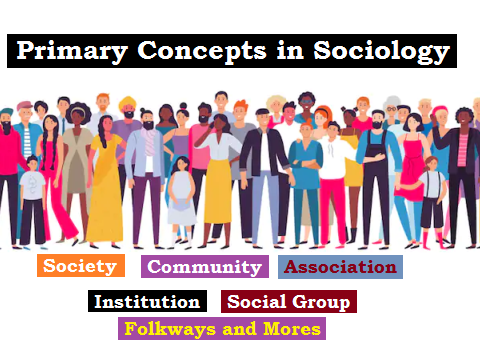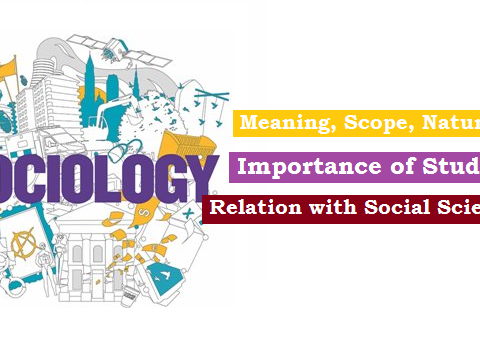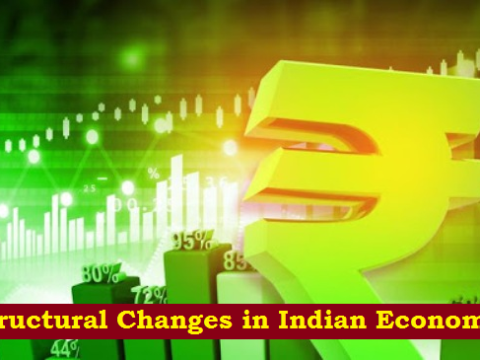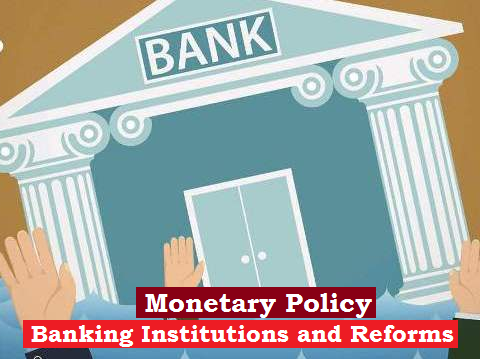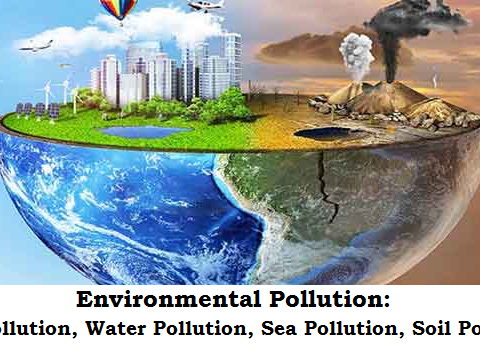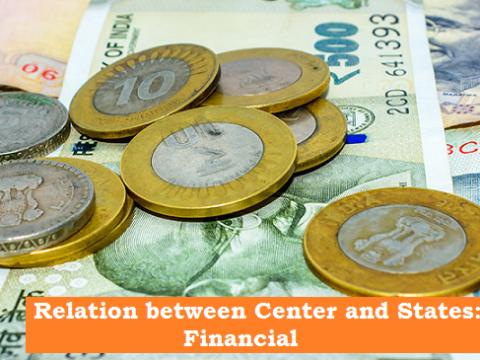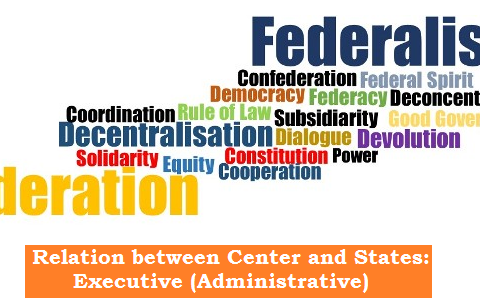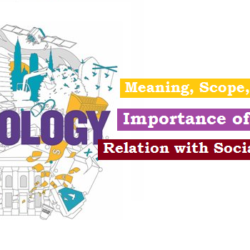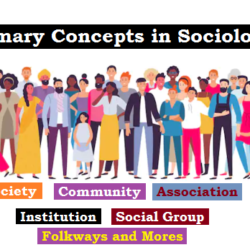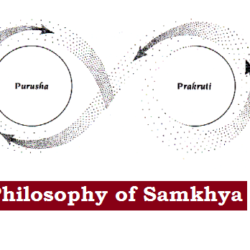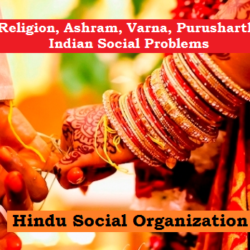Primary Concepts in Sociology: Society, Community, Association, Institution, Social group, Folkways and Mores (समाजशास्त्र की प्राथमिक अवधारणाएँ: समाज, समुदाय, समिति, संस्था, सामाजिक समूह, जनरीतियाँ एवं लोकाचार)
Society The term society is most fundamental to sociology. It is derived from the Latin word socius which means companionship or friendship. Society is a network based on social relationship…
Sociology: Meaning, Scope, Importance, Relation with Social Sciences (समाजशास्त्र: अर्थ, क्षेत्र, महत्व, अन्य विज्ञानों से इसका संबंध)
The word sociology is derived from both Latin and Greek origins. Socius (Latin): Companion ; Logos (Greek): Study According to Max Weber, “Sociology is the science which attempts the interpretative…
Structural Changes in Indian Economy: Public and Private Sectors (भारतीय अर्थव्यवस्था मे संरचनात्मक परिवर्तन: सार्वजनिक एवं निजी क्षेत्र)
The World Economic Outlook of October 2019 has estimated India’s economy to become the fifth largest in the world, as measured using GDP at current US$ prices, moving past United…
Monetary Policy: Banking and Non-Banking Institutions and their Reforms, Regulation of Credit by RBI (मौद्रिक नीति: बैंकिंग एवं गैर बैंकिंग संस्थान और उनमे सुधार, रिजर्व बैंक के साख का नियमन)
Monetary policy refers to the policy of the central bank (i.e. Reserve Bank of India) to control inflation and achieve the ultimate objective of economic policy in the country. It…
Environmental Pollution (Part II): Noise, Thermal and Nuclear Pollution (पर्यावरण प्रदूषण: ध्वनि, तापीय एवं नाभिकीय)
Pollution is the effect of undesirable changes in our surroundings that have harmful effects on plants, animals and human beings. During the last few decades we have contaminated our air,…
Environmental Pollution (Part I): Air, Water, Sea, Soil Pollution (पर्यावरण प्रदूषण: वायु, जल, समुद्री, मृदा प्रदूषण)
Pollution is the effect of undesirable changes in our surroundings that have harmful effects on plants, animals and human beings. During the last few decades we have contaminated our air,…
Solid Waste Management
The waste material which is in any discarded form like garbage, reuse, sludge, treatment plant or any other pollution control facility is referred to as solid waste. Any material including…
Biodiversity and its Conservation
Table of Contents: 1. What is biodiversity? Genetic Diversity Species Diversity Ecosystem Diversity2. Bio-geographic Classification of India 3. Importance of Biodiversity 4. Biodiversity at Global, National and Local Levels Biodiversity…
Relation between Center and States: Financial
The Constitution of India, being federal in structure, in Part XI divides powers- legislative, administrative, financial- between the Center and the States.The Center- State relations can be divided under three…
Relation between Center and States: Executive (Administrative)
The Constitution of India, being federal in structure, in Part XI divides powers- legislative, administrative, financial- between the Center and the States.The Center- State relations can be divided under three…

 Home
Home Syllabus
Syllabus Contact Us
Contact Us